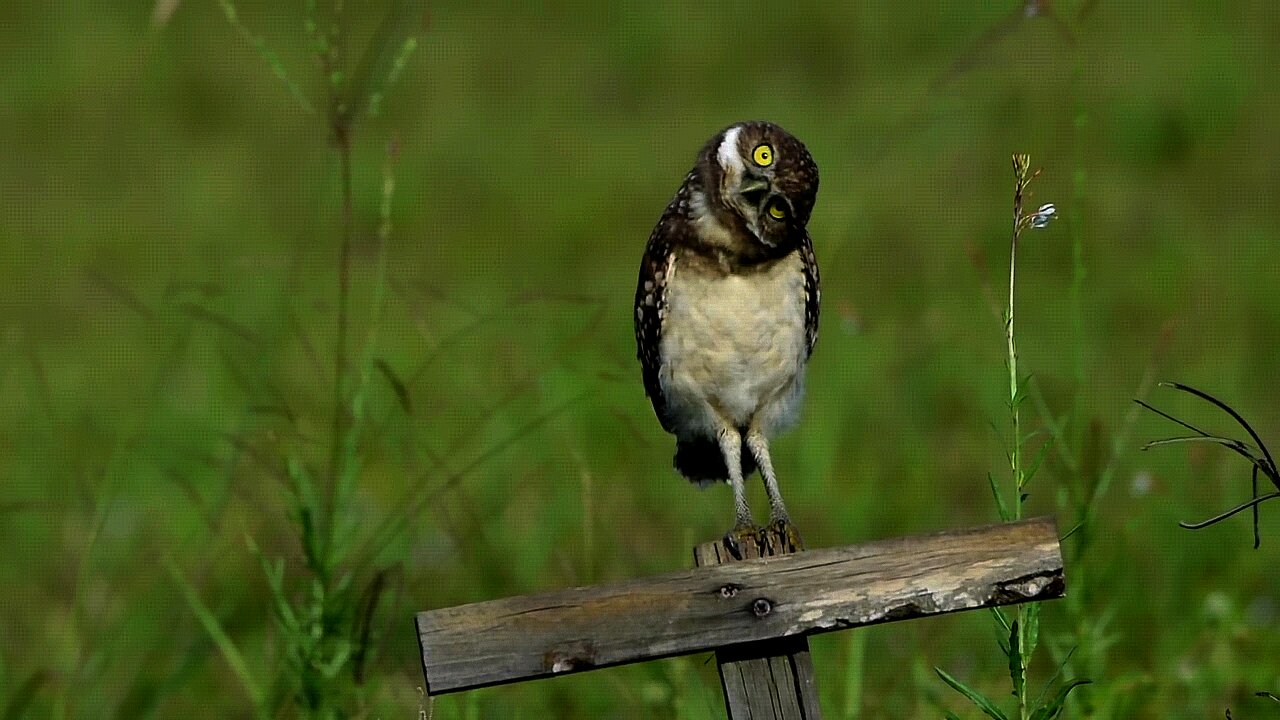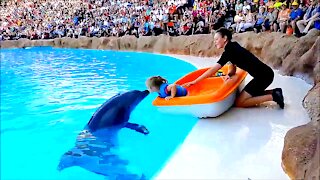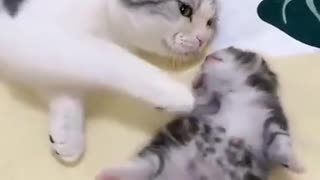Premium Only Content
This video is only available to Rumble Premium subscribers. Subscribe to
enjoy exclusive content and ad-free viewing.

Baby Owl Loves Head Bobbing
3 years ago
61
All these varied head movements help the owl judge the position and distance of things around it—essentially, to triangulate on objects, including potential prey, and to build a composite picture of its surroundings.
This head-bobbing helps make up for an anatomical limitation: An owl’s eyes are fixed in position, so they simply can’t move the way our eyes do. To look up, down, or to the side, an owl has to move its head.
They have very flexible necks and can do 270 degrees of a full head turn, looking over one shoulder, around the back, and almost over the opposite shoulder. And after a few of these head-bobs to triangulate on their prey, they rarely miss.
Loading 24 comments...
-
 1:37
1:37
Expert Videos Magnetic Media
3 years agoDolphin kisses a little girl and brings her a gift
51144 -
 0:11
0:11
Raghavraman
3 years agoMumma cat loves baby kitty
60 -
 2:26:24
2:26:24
Tommy's Podcast
6 hours agoE739: Very Short Stream
24.4K1 -
 2:46:55
2:46:55
TimcastIRL
8 hours agoDemocrats Launch DESPERATE MILLION Dollar Bid To Find "Liberal Joe Rogan" Project SAM | Timcast IRL
241K93 -
 2:51:42
2:51:42
Laura Loomer
7 hours agoEP123: Trump Admin Puts Harvard In Their Crosshairs
45.7K18 -
 6:29:41
6:29:41
MyronGainesX
1 day ago $33.86 earnedCharlie Kirk vs 400 Cambridge Students And Andrew Wilson vs Feminist
92.4K17 -
 9:11:39
9:11:39
Bitcoin Magazine
1 day agoThe Bitcoin Conference 2025 | Day 1 Livestream
238K15 -
 23:08
23:08
Producer Michael
14 hours agoWE FINALLY FLEW HIM TO BEVERLY HILLS! MILLION SUBSCRIBER GIVEAWAY
53.1K4 -
 1:29:30
1:29:30
Glenn Greenwald
11 hours agoThe ADL's Censorship Mission Revealed | SYSTEM UPDATE REVISITED
96.2K38 -
 7:28:51
7:28:51
Reolock
9 hours agoWoW Classic Hardcore | Levels for DAYS
52.9K1